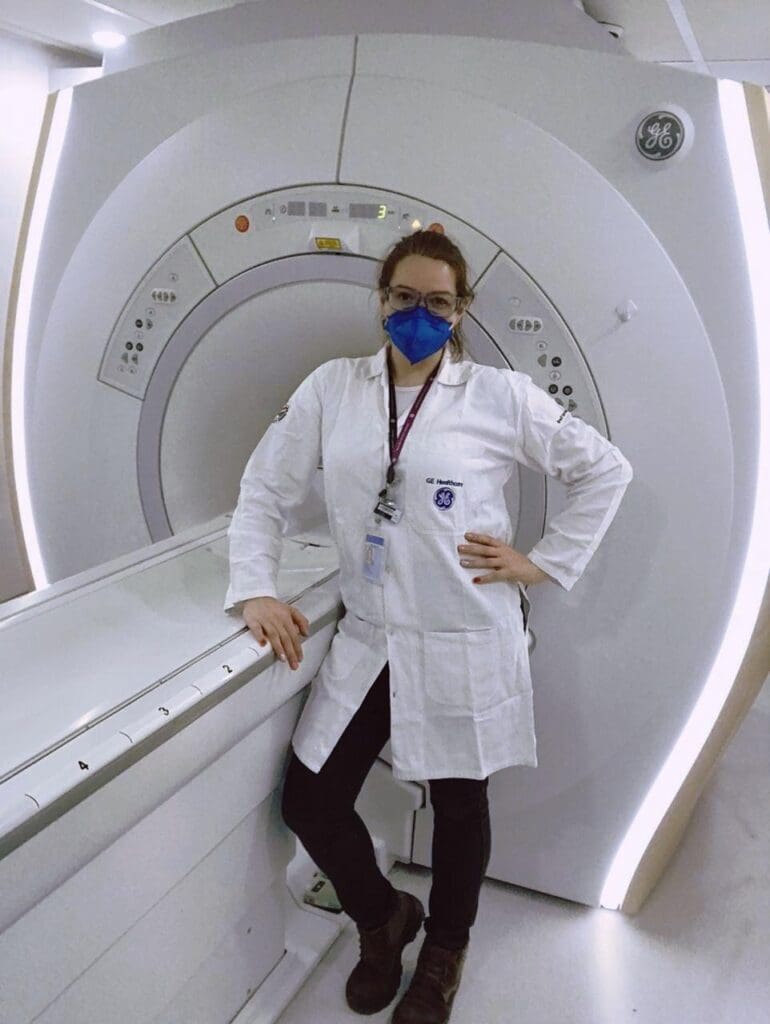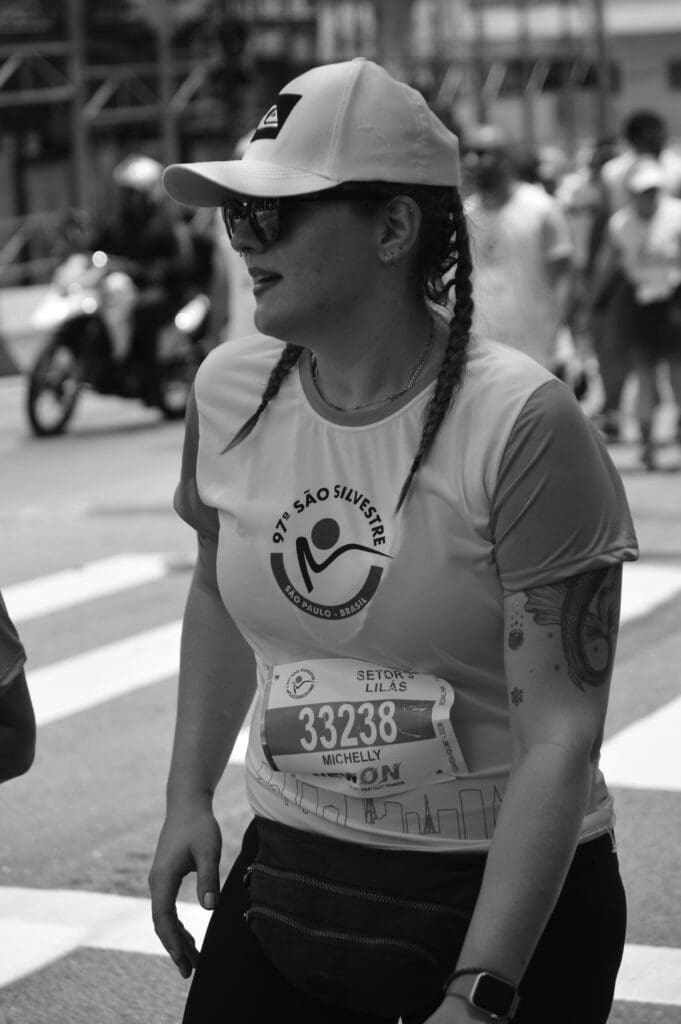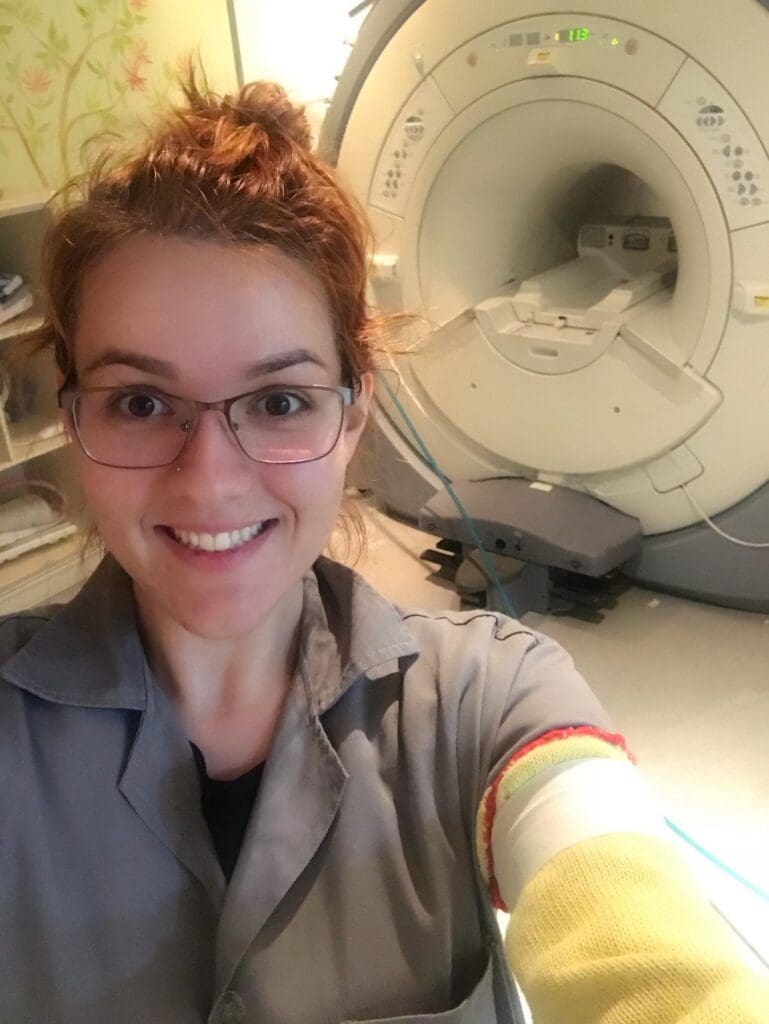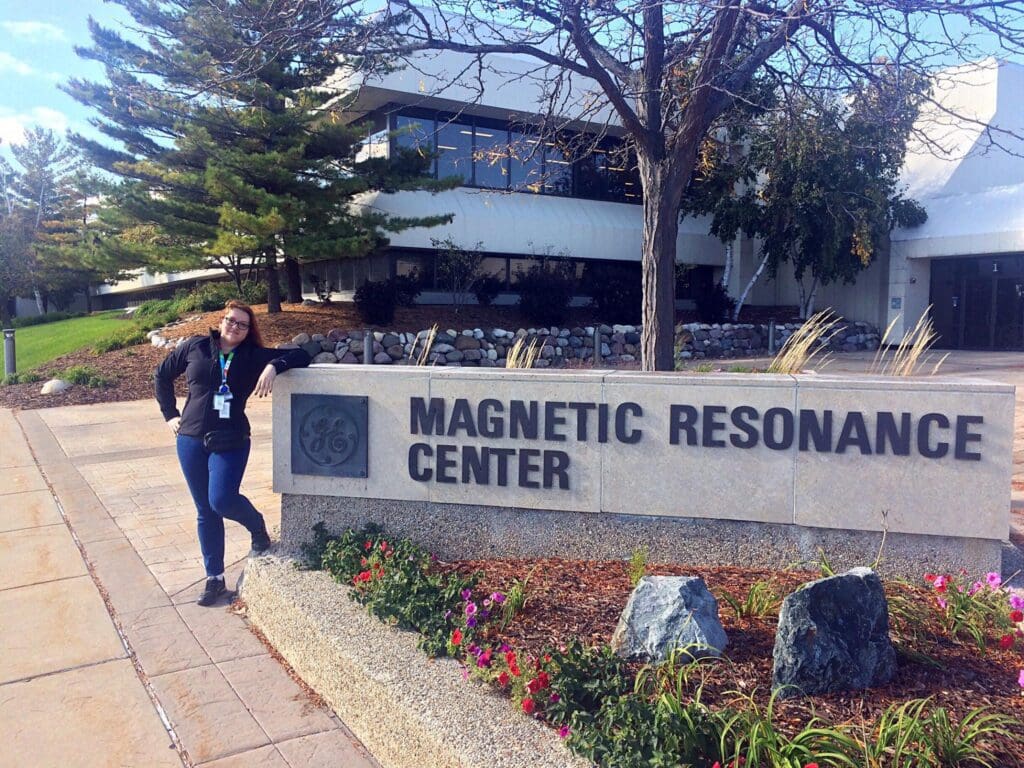Teacher to Field Engineer – one woman tells her story
Michelly Rodrigues is a Field Services Engineer and works for GE Healthcare supporting the modality of MRIs. She also volunteers as a teacher to provide electrical training for people who cannot otherwise afford to be trained. The teaching opens job opportunities for them.
Michelly is based in Sao Paulo in Brazil.
Meet Michelly Rodrigues Field Services Engineer with GE HealthCare from Brazil


Background and path to engineering
Could you give a brief description of your background and what led you to study and work in engineering? Were there any childhood interests which were a factor?
When I was a child, I enjoyed playing with my grandpa’s and daddy’s tools, because they were always repairing something in the house. I believe my interest in engineering area came from my childhood.
In my career I have moved from Field Technician to Field Specialist and later became a Field Engineer.
I studied in technical school, graduating in High School as an Electronics Technician. Later I graduated as a Technologist in Electrical Systems and then received my Bachelor’s degree in Electronic Engineering.
Have you always liked fixing things?
Well, I always saw problems as opportunities to learn something. When I see that something is not working properly, I understand that I can learn from that; understanding how it works and how I can make it work better.
Inspiration
Has there been a particular person who has inspired you?
When I decided to study at Technical School, I had a teacher who really inspired me to work in the medical equipment area. He was a manager of Clinical Engineering inside a very important hospital in São Paulo. Recently, I had the opportunity to work with him in two ways. One as a partner in services and the other as a teacher, when I started teaching automation in the evenings at the Centro Paula Souza.


Electronics to Healthcare Field Engineer at GE
You studied Electronics and then worked in this field. How did you crossover into Medical Engineering?
I started to work with Electronics at the beginning of my career. Since I always worked full time during the day and studied in the evenings, it was a teacher who was my inspiration to start working in the medical area.
I always believed that teachers are the most important part of a children’s and teenagers’ career development. That’s because when you are studying and planning your future, you have direct contact with seniors in the area who are passing their knowledge to you.
This teacher had a great approach with the class, and I believe he inspired not only me, but many others who now also work in the medical field.
Which skills did you take with you?
Electronics are inside everything.
That’s core for engineering and to develop technology you have to know about electronics. When you develop, or when you repair a piece of medical equipment, you are mainly troubleshooting an electronic device. Also, the sciences area (we call it STEM or STEAM nowadays) are connected with everything we do daily, even when we don’t know that.
Teacher to Engineer
You taught for six years. What did you teach? What did you like about teaching?
I taught for six years in Centro Paula Souza, balancing my professional and academic careers during those years.
During the days I worked as a full time Field Engineer and in the evenings, I worked as a teacher for the technical courses of Electronics, Electrotechnics, and Industrial Automation. During these years I taught many different subjects. The most amazing thing about teaching is seeing your class grow over the course. It is gratifying to see that sharing knowledge has such a big impact on people’s careers and future life.
What skills did you take with you to use working as an engineer?
The importance of how to share your knowledge and how to learn in turn from every person you teach and work with.
It is a win-win process.
Typical day as a Field Engineer at GE HealthCare
What’s your typical day like? (How much is hands on, how much admin, etc.)
That’s a very good question. A typical day starts with energy and coffee 🙂
I have a rule for myself that my day must start with exercise. It doesn’t matter if it is jogging, yoga, or bodybuilding, I must have my workout hour before breakfast. Then coffee always to start a “winning day”.
This routine gives me energy to work all day long and perform to the best of my ability.
For my job, the expectation is to balance around 80% of the time repairing the equipment and 20% of the time performing the related administration. But it varies. It depends on the complexity of the job. Usually, the greater the complexity the greater the amount of administration you have. In terms of administration, you have:
forms to fill in,
other areas who are involved that you must alert,
quality assurance tests to report.
Which other people in the company give you support?
Within the company we are connected to many other departments such as logistics, sales, the service centre, the online centre, and the support centre. We need support from all of them in order to deliver results for the end customer.


Studying and working
You have kept studying while you work. How do you manage to do this and keep a work life balance?
While studying and working together we need to try to balance everything in order to work, study, and live with quality of life. Sometimes it is difficult, but it is a daily challenge. I always believe that you have to know your priorities in order to develop your strategies to reach your goals. My aims and goals can be different from others, so each and every one of us must know what we want and where we want to go.
I use a weekly planner, and divide my day into three periods: morning, afternoon, and evening. After that I divide these periods into smaller periods where I can note my routine and strategies for the week. Every morning I leave one hour for my morning workout to give me energy to use during the day. The break pause between the morning and afternoon is filled with lunch time where I try to choose healthy food to sustain my energy all through the afternoon.
My evenings I organise my time to study, to have a mindfulness moment, and to go out with colleagues and friends.
Balancing depends on how I place activities in my weekly planner. For me the weekly planner is a visual tool that helps me to get organised and prioritise my choices.
Women in engineering
Women engineers are still in a minority. Do you think this is changing, and why? What else can be done?
I see that women engineers are still in a minority because of the way our society was built in the past. But those days are in the past, and as we grow as society, we learn that inclusion and diversity is what works better to build a future. I believe that we can and must have diversity in every company, as this is a way to bring equality into the market.
I also believe that STEM (or STEAM) is a great way to develop interest in both boys and girls from childhood.
STEM and STEAM are two educational approaches that focus on teaching students in the fields of science, technology, engineering, and mathematics, with STEAM adding the arts to the mix. Both STEM and STEAM education aim to prepare students for careers in fields that require strong analytical and problem-solving skills, as well as creativity and innovation.
Advice for women engineers
What advice would you give to other women engineers in terms of: Being physically fit and strong?
Making relationships with customers?
Establishing credibility with customers, colleagues, and other people?
Be curious, think about health and make strong and valuable connections with people.
When you are curious you open your mind to learning everyday with every experience you have. To be an engineer you will have to be a lifelong learner to prosper, and curiosity will lead you on the path of knowledge.
When I say think about health, I mean to make your daily choices healthier such as drinking enough water and taking exercise. If you have a healthy body and mind this will help your daily activities to flow better.
Also don’t pollute your thoughts with rudeness, selfishness, or grudges because this behaviour won’t get you anywhere.
Strength is needed more intellectually than physically. You can develop tools to work for you and to help you in many different ways, so use your creativity for that.
The most important thing is to make valuable and strong connections with people because this is what matters in the end: it is all about people. People build a company, people live in a society created by people, we cannot be alone in our journey, and we need to have strong bonds and connections to people. When we start thinking about relationships, networks and even credibility I believe it is all about people respecting people. When you make these bonds, everybody wins.
I believe this is advice not only for developing a career in engineering, but also advice for life.


Career in engineering
What are the advantages of being a woman engineer?
I don’t know if there is any advantage to be honest. I always saw engineering as a choice that made me happy at the end of the day. But reflecting about this question I believe that the advantage of being a women engineer is that I have the opportunity to work as an inspiration to young girls who can also seek a career in engineering and technology.
Would you advise young women to start a career as a medical engineer, and why?
Definitely yes!
I would advise young women to start a career as a medical engineer, or in any other branch of engineering and technology. Our future is based on the development of new technology. If we really want a future which is more inclusive and with equality we must start to think about these careers.
Most challenging part of the job as a Field Engineer at GE HealthCare
What do you find most challenging when you are working – technical side, logistics, or people/customers?
I think the most challenging part is people.
We must understand that even if we try our best to be understood, communication reaches each one of us in a different way. So, people are our challenge. Daily, we have to deal with a great variety of people who think differently, work differently, and understand differently than us.
So, our challenge is how to develop our communication in an efficient way so that we can reach people and transmit the message in the way we want it to be understood.
Working during Covid as a Field Engineer for GE Healthcare
What has been your most challenging job to date?
My most challenging job so far was in the middle of the pandemic of Covid 19.
At that time, I was responsible for a big delivery of equipment to a very important customer in the middle of the night. We had to work between midnight and 9am due to traffic restrictions on a major street of São Paulo. I needed to support a huge operation coordinating with the customer, traffic authorities, transportation, and local police. Meanwhile we faced all the restrictions of lockdown due to the pandemic. It was a delivery of four big pieces of equipment: an MRI, a CT scanner, a Mammography machine, and an XRay machine. They had to be moved by a lifting truck to the right floor of the building.
All the coordination of the job, from the beginning until the delivery of all equipment was my most challenging job so far.
Easy fixes
Have you ever arrived on site and found that it’s been much easier than you expected? For example, have you just needed to switch on a machine?
Yes, sometimes this happens. Sometimes it is just an internal cable that has come loose, and you solve the problem in ten minutes.
Dealing with challenges
What do you do when something is really difficult and challenging?
When something is really difficult, I usually open the schematics of the equipment, print it and start to draw lines in coloured pens to better understand the problem I am facing. Most of the time this approach solves my problem because it turns the problem into a visible one on paper. When the problem is harder than that I call the support team and share with them all the mapping I have performed in order to solve the problem. So together we can analyse the problem until we reach a solution for the customer.
Lessons learnt from the Covid 19 pandemic
How did working during Covid change your way of doing things?
I believe working during the pandemic made me more organised. I had to learn how to plan my job and my daily tasks because I could not count on any open places due to the lockdown.
What has improved since Covid?
I saw a huge improvement in remote services due to the pandemic. Since then, there has been an improvement of online services in the medical devices area. Now telemedicine reaches a large part of the population, solving many problems remotely.
I believe this is the future of work: remote work.
What lessons have engineers learnt from Covid?
We have learnt that we must work for a greater good. In engineering we can develop technology to help people, to make life simple, and to improve our quality of life.


Further reading about healthcare field engineers
Meet Fausto Cruz GE HealthCare Field Services Engineer from Brazil
Lorena Leal dos Santos Engineering Intern at GE Healthcare Brazil


Responses